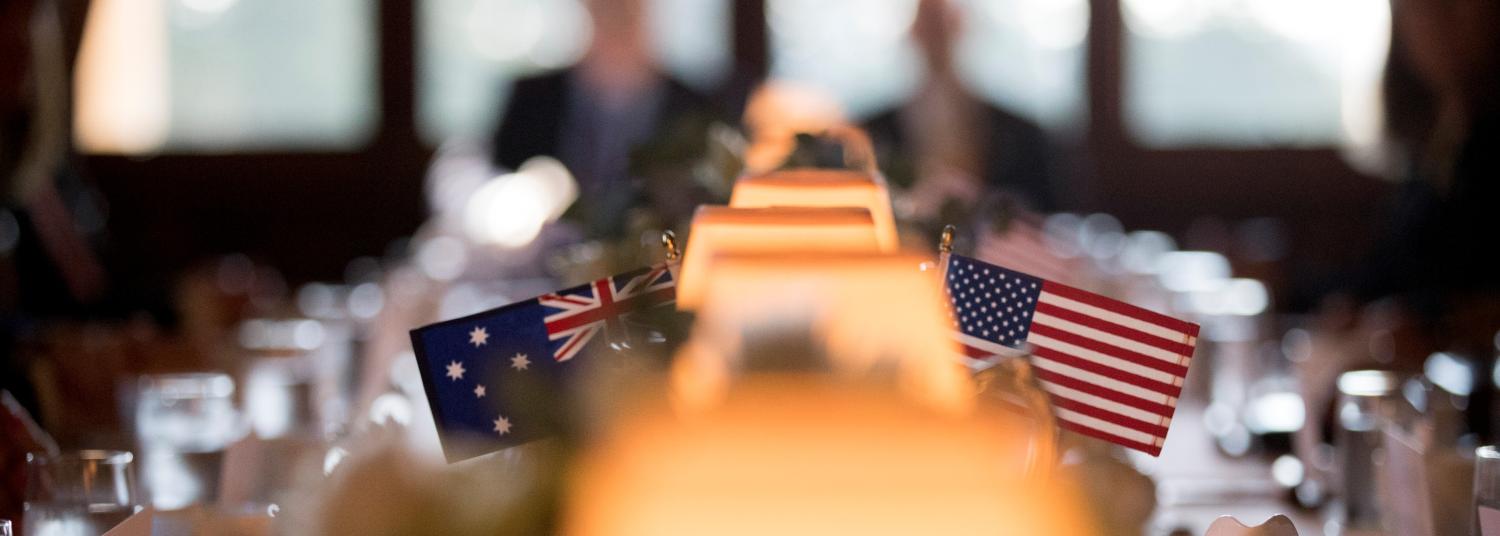Since the election of Donald Trump, a great deal of faith – naturally enough – has been put in the very occurrence of encounters that Australian ministers and prime ministers have had with their American counterparts.
Whether it be introductory calls that both Ministers Bishop and Payne have had with Secretaries Tillerson and Mattis, or the pomp and pageantry on the USS Intrepid in New York, the government and much of the commentariat have been at pains to suggest that all is well in the alliance in an age of uncertainty.
More worrying, though, are the continuing signs that Australian leaders are not facing up to what one analyst has called a ‘strikingly different America’. According to one view, ministers simply do not want to hear the gloomy predictions about the volatility in Washington. These early contacts with the administration seemed to have reinforced the view that Trump’s America is ‘not that bad’.
So it comes as no surprise that the rhetoric of reassurance again emerged from yesterday’s AUSMIN meeting. Again, that is not to be sneered at in an era in which alarmism and panic about the direction of US policy is in understandably widespread. The meeting has the benefit, quite simply, of exhibiting that the relationship endures whoever occupies 1600 Pennsylvania Ave.
Listen more closely to official American rhetoric, however, and it is something of a puzzle to explain why some in Canberra respond in the way that they do. Thus Senator John McCain, in what appeared to be something of a lament for his country during a visit to Sydney last week, practically begged Australians to ‘have faith in America’. He beseeched allies to ‘stick with’ the US and to ‘encourage us to stay true to who we are at our best’. The administration, he conceded, is still ‘finding its feet’.
Similarly at the Shangri-La Dialogue, Secretary Mattis implored US allies in the region to ‘bear with us’, adding that once Washington had ‘exhausted all possible alternatives’ – a curious phrase on which he did not expand – ‘we’ll still be there’.
Both speeches reflected the uneasy mix that is US policy at the moment – an America caught awkwardly between its prevailing national beliefs and the reality of its limited capacity to shape global events. Trump’s erratic behaviour makes that dilemma all the more acute.
There is, then, a whiff of blind faith being employed by some Australian ministers in their responses to these kinds of American sentiments. They refuse to hear the doubt and uncertainty coming out of this US rhetoric. They hear only what they want to hear. Thus, in what must surely be one of the more uncritical comments to emerge from the weekend in Singapore, Marise Payne simply affirmed that it didn’t take Mattis’ speech to ‘reassure [her] of the attitude and engagement of the United States in the region’.
Turnbull epitomised the same confidence in American staying power but in a different form. His bullish speech in Singapore on China now seems to have moved his position more into line with that of his foreign minister. Where Bishop in March said publicly that the Beijing would never reach its full potential unless it embraced democracy, Turnbull laid down some sharp lines of his own by stating that a ‘coercive China would find its neighbours resenting demands they cede their autonomy and strategic space, and look to counterweight Beijing’s power by bolstering alliances and partnerships, between themselves and especially with the United States’.
But will Turnbull put the real beef into this kind of rhetoric and do what the US really wants? Namely, authorise an Australian naval vessel to conduct a freedom of navigation patrol through the contested 12 nautical mile zone around some of the contested territories in the South China Sea? It is unlikely. Turnbull talks of the paramount importance of defending the rules based order, but China has virtually ignored last year’s Hague ruling. Fond of quoting both ancient and modern theorists of foreign relations, the prime minister surely also recognises that international law is nothing if not backed by hard power.
Turnbull continues to point to Asia’s success as one based on the ‘freedom of the rules based network, the pax americana’. All this is fine as a historical point. But he is using this language at a moment when Trump is turning away from that very idea of US global leadership. The prime minister’s words do little but fade into the mist.
At some point Turnbull has to acknowledge a changed America. In his Shangri-La speech he finally commenced a certain recalibration of his alliance rhetoric, saying that the relationship with the US is not a ‘straitjacket for Australian policy-making’. It was drowned out by his drumbeat on China, but it does show that a more qualified, nuanced position on the alliance is still possible.

